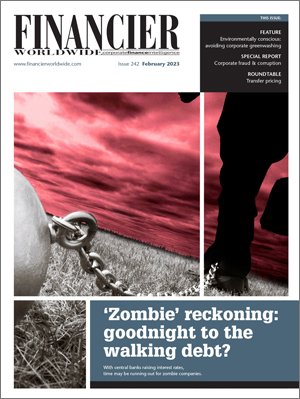FW discusses the impact of DAC7 and DAC8 with Romain Tiffon at ATOZ Tax Advisers.
FW: Could you provide an overview of recent developments around European Union (EU) tax transparency rules for digital platforms? What are the underlying reasons for creating new rules on reporting and exchange of information relating to the digital economy?
Tiffon: The most notable recent developments around tax transparency rules for digital platforms are those introduced by the sixth amendment (DAC7) and the proposal for a seventh amendment (DAC8) to the Directive on Administrative Cooperation. Both initiatives aim to impose on digital platforms – for DAC7 – and on cryptoasset providers – for DAC8 – the obligation to collect information from their users and report to the relevant competent authority information about these users. More specifically, digital platform operators will have to declare to local tax authorities where the reportable seller is resident and, if the seller provides immovable property rental services, where the property is located. With respect to cryptoasset providers, they will have to report to the competent authorities where the reportable cryptoasset user is resident. The fundamental driver for these two initiatives is the need to track transactions in an environment where traditional international tax principles do not apply, and to adequately detect triggering events for tax purposes.
FW: What specific powers does the introduction of new automatic exchange of information (AEOI) reporting requirements – the Directive on Administrative Cooperation 7 and 8 – grant national authorities?
Tiffon: DAC7 and DAC8 do not really grant new powers to national authorities. Rather, they just expand the scope of application of the automatic exchange of information under the Directive on Administrative Cooperation to new types of reportable persons and reportable transactions.
FW: What organisations fall within the scope of the DAC7 and DAC8 reporting requirements?
Tiffon: The organisations that are targeted by DAC7 and DAC8 reporting requirements have been defined in such a way as to encompass as many actors as possible. Under DAC7, reporting obligations will fall on reporting platforms being defined as any software, including a website or a part thereof, and applications, including mobile applications, accessible by users and allowing sellers to be connected to other users for the purpose of carrying out a relevant activity, directly or indirectly, to such users. It also includes any arrangement for the collection and payment of a consideration in respect of a relevant activity. In somewhat the same vein, DAC8 imposes reporting obligations on so-called reporting cryptoasset service providers, which means a provider or an operator that permits users to complete an exchange transaction between cryptoassets and fiat currencies, or between one or more reportable cryptoassets.
“The positive impacts of DAC7 and DAC8 are that the newly introduced reporting requirements will be more aligned between digital economy income and more traditional income.”
FW: Given the continued growth of decentralised cryptoassets, how will DAC8 affect taxpayers that are investing in and using cryptoassets?
Tiffon: DAC8 introduces a level playing field for taxpayers that are investing in and using cryptoassets, in that it aims to facilitate the ability of tax administrations to trace and detect taxable events. Up until now, broadly cryptocurrencies were not captured under any exchange of information legislation which, due to the decentralised nature of that asset class, could easily lead a relevant taxpayer not to declare any income or gains related to cryptoasset holdings. By introducing these new rules, it is expected that additional tax revenues could reach €2.4bn.
FW: To what extent do the new reporting requirements extend to platform operators that perform commercial activity in the EU but are neither resident for tax purposes, nor incorporated or managed, or have a permanent establishment, in a member state?
Tiffon: DAC7 and DAC8 create a level playing field between European Union (EU) and non-EU players in that the reporting obligations will not be linked to the residency of the digital platform operators or of the cryptoasset service providers, but will rather be linked to the residency of the end user. This approach is most welcome in that it will avoid any unfair competition linked to residency among operators. With regard to non-EU digital platform operators and cryptoasset service providers, this will, however, require them to register and report in one single member state in order to comply with their reporting obligations. With regard to non-EU regulated cryptoasset service providers, they could, however, be exempt from reporting in the EU member state where they hold authorisation if correspondent reporting takes place in a non-EU jurisdiction, and there is an effective qualifying competent authority agreement in place, thus allowing the qualified non-EU jurisdiction to communicate the relevant information to the relevant EU tax authorities.
FW: How will the amended reporting requirements work in EU member states that already have similar rules in place?
Tiffon: EU member states that already have similar rules in place will have to amend them in order to make them compliant with the DAC7 and DAC8 requirements, if necessary.
FW: In what ways are the new rules likely to force certain companies to adjust their processes to ensure ongoing compliance? What advice would you offer to those seeking to prepare accordingly?
Tiffon: Both DAC7 and DAC8 require digital platform operators and cryptoasset providers to put in place a due diligence process to collect and declare specific information about their users. From a compliance perspective, they will need to condition access to their platforms on obtaining verifiable data from those prospective users. As this is an ongoing exchange of information, this will also require digital platform operators and cryptoasset service providers to maintain up to date reliable data about their users. We are likely to see a process that is similar to the application of know your customer (KYC) and anti-money laundering (AML) principles for certain service providers. Users who fail to provide or update the necessary information will be unable to use the process.
FW: What are your predictions for the impact of DAC7 and DAC8, which came into force on 1 January 2023? What further regulatory developments might we see in the coming years, as the digital economy continues to evolve?
Tiffon: The positive impacts of DAC7 and DAC8 are that the newly introduced reporting requirements will be more aligned between digital economy income and more traditional income, which, combined with regulatory initiatives such as the October 2022 ‘Markets in Crypto-Assets of the European Council’ will lead to more investor protection and less market volatility and instability in the medium to long run. Given the recent scandals in the crypto space, this is most welcome as it will help to stabilise the market. As to potential further regulatory developments, this is a difficult question to answer as we have not fully digested all the benefits and consequences of blockchain and decentralised finance, but I would not be surprised to see regulations considered in the context of the metaverse. There will also be greater calls for security when it comes to running blockchain apps that are compatible with non-blockchain data or services.
Romain Tiffon is a partner in the international & corporate tax department at ATOZ. A tax professional since 2006, he has experience in structuring pan-European alternative investment funds across all asset classes, as well as coordinating tax structuring advice and implementation for a wide range of institutional investors. He also has extensive experience in structured finance, M&A transactions and sovereign wealth funds. He can be contacted on +352 26 940 245 or by email: romain.tiffon@atoz.lu.
© Financier Worldwide



